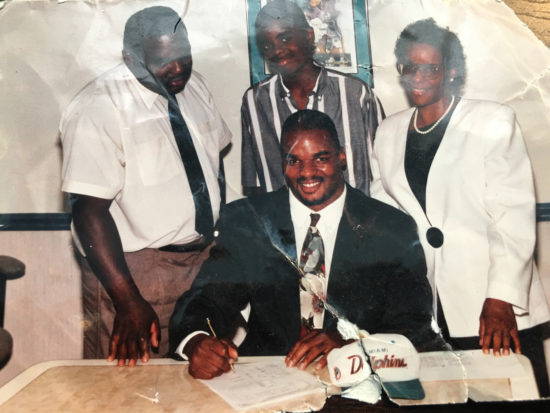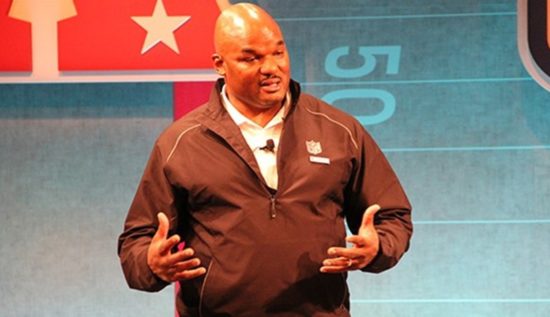I guess I started preparing to leave when I decided to go to graduate school. I made that decision as I was looking around and there was a lot of turnover on the team I was with, the Miami Dolphins. You know, we had just gone through a coaching change, and there was a tremendous amount of turnover. At the same time, younger guys were calling me the old dude in the locker room, and I was like 27 or 28, and they’re calling me the old dude. Now I’m thinking, ‘OK, I should probably start figuring out what I’m going to do next,’ considering the circumstances.
So, I took a chance and decided to go back to graduate school, and start working on a master’s degree in counseling. I wasn’t completely sure what the counseling degree would lead to or where it was going, but psychology and the possibilities of helping people spoke to me.

